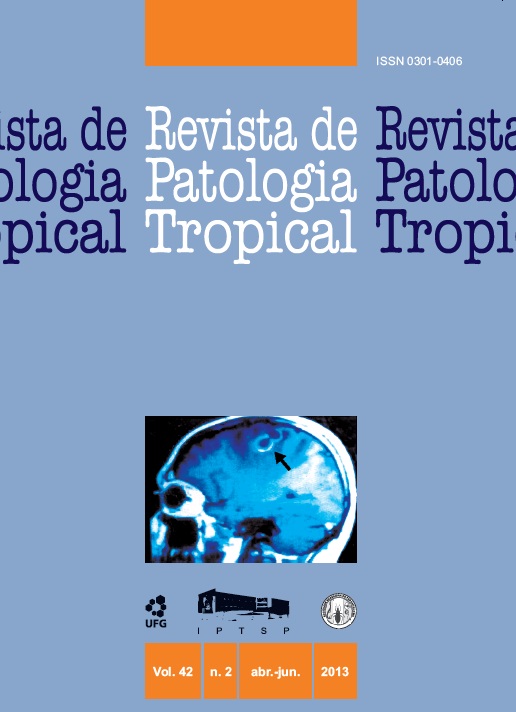Evaluation of ovicidal and larvicidal activity of ten plant extracts against Ancylostoma spp.
DOI:
https://doi.org/10.5216/rpt.v42i2.25526Keywords:
Hookworms. Plant extracts. Eggs. Larvae.Abstract
Several investigations have highlighted coproparasitological Ancylostoma spp. as the helminth species that most frequently parasitize the domestic dog, causing possible damage to the host such as irritability, anorexia, severe anemia and death. Hookworms are intestinal parasites that spend part of their life cycle in the soil, with short periods for egg hatching and larval maturation. It is essential that these two processes occur, so that the parasites may reach their infective stage. The present study aimed to evaluate the in vitro ovicidal and larvicidal properties of extracts from toxic plants collected in the Paraíba Valley region, Brazil, against Ancylostoma spp. Hydroalcoholic extracts were obtained from 10 plants, by the Soxhlet method, concentrated by solvent evaporation, and the final concentration of extract was adjusted to 10% of the crude extract. Fecal samples from naturally infected dogs were used, from which hookworm eggs were purified, and in parallel culture of larvae was performed using the method of Harada-Mori. Between the plants evaluated, four showed promising results, namely: Allamanda cathartica L. (Apocynaceae), Neriumoleander L. (Apocynaceae), Mirabilis jalapa L. (Nyctaginaceae) and Brugmansia suaveolens Willd. (Solanaceae), particularly the last two, which showed 100% larvicidal activity at a dilution of 12.5mg/ml, thereby demonstrating the potential use of these extracts for environmental decontamination and the control of Ancylostoma spp. larvae.
Downloads
Downloads
How to Cite
Issue
Section
License
The manuscript submission must be accompanied by a letter signed by all authors stating the full name and email address, confirming that the material has not been published or is under consideration for publication elsewhere, and agreeing to transfer copyright in all media and formats for Journal of Tropical Pathology. The authors will not be paid for published articles. They are solely responsible for the content of those articles, even if the Editor holds the right to adjust them to the norms of the journal.
The reviewers will not be paid for the peer review process.

